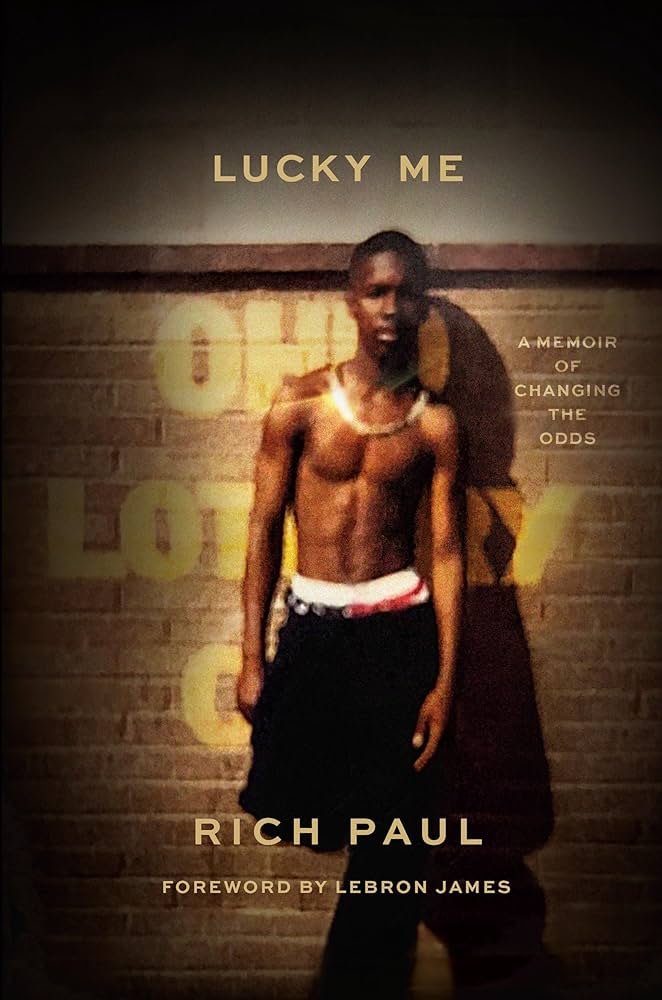“Between stimulus and response there is a space. In that space is our power to choose our response. In our response lies our growth and our freedom.”
You are going to be called names, the closest people to you are going to tell you that your ideas would not work, people are going to be mean to you for no particular fault of yours, and you are going to be stereotyped because of your gender, religion, or race. In the age of social media, we have become more unkind to each other, shutting each other up, and not listening to each other is the new norm. Learning to filter out the noise and tune into the frequency you want to listen to, is an act of self-discipline. People are going to try to hurt you with their words and actions but always remember that “It is not what you hear, it is what you listen to.” As the Austrian psychiatrist, Holocaust survivor, and author of Man’s Search for Meaning, Viktor Frankl once said “Between stimulus and response there is a space. In that space is our power to choose our response. In our response lies our growth and our freedom.”
It takes someone who is hurt to try to hurt someone else, hurt people hurt people. Most people are going through a lot of things that you know nothing about, behind those smiles is someone that is using their hurt as a cry for help. When people say nasty things or do things that try to hurt you or bait you for reaction, remember the words of the Roman emperor and Stoic philosopher
Marcus Aurelius who said:
“When you wake up in the morning, tell yourself: the people I deal with today will be meddling, ungrateful, arrogant, dishonest, jealous and surly. They are like this because they can’t tell good from evil. But I have seen the beauty of good, and the ugliness of evil, and have recognized that the wrongdoer has a nature related to my own – not of the same blood and birth, but the same mind, and possessing a share of the divine. And so none of them can hurt me. No one can implicate me in ugliness. Nor can I feel angry at my relative, or hate him. We were born to work together like feet, hands and eyes, like the two rows of teeth, upper and lower. To obstruct each other is unnatural. To feel anger at someone, to turn your back on him: these are unnatural.”
Rich Paul is an American sports agent and founder of the American sports agency Klutch Sports Group. He is considered one of the most powerful agents in sports with a client pool that includes some heavyweights such as Lebron James, Anthony Davis, Draymond Green, Trae Young (NBA), and some athletes in the NFL. Rich Paul grew up in a tough neighborhood, he started gambling at a very young age and hustled his way to become one of the most successful sports agents in the world.
In his memoir, Lucky Me: A Memoir of Changing the Odds, Rich writes about his early upbringing, his mother’s drug addiction, lessons learned from his father, and the most important insights that he garnered from the streets. One of the most important lessons that Rich shared in the book is the power of turning adversity and hurt to your advantage. He shared a story that epitomizes the spirit of “It is not what you hear, it is what you listen to.” He writes.

Growing up, we used to rank on people. “Ranking” has a lot of regional and generational variations: joning, snapping, playing the dozens, whatever. You make fun of someone to the point where everybody laughs at them. It was one of my specialties. Sometimes you’re ranking and everything is cool until you go on a run of really funny snaps and the opponent feels like they got to hit you with a low blow. One day I was going off on this guy and had all our friends in stitches. Bro looked like he was about to cry. All of a sudden he said:
“That’s why your mother smokes crack.”
That threw me off. I tried to act like it didn’t matter and kept ranking, but the momentum had shifted. I was scrambling to get off the mat like a boxer who just caught a kidney shot. The same thing happened a couple more times—I’d be in a groove and my opponent would respond with “That’s why your mom’s a dope fiend,” and that put me on my heels. I started thinking about the scenario when I was alone. My presentation and my rep were important to me, they were part of the credibility I needed to move like I was moving. What it boiled down to, although I didn’t recognize it at that young age, was respect. I needed to be respected to be successful.
I turned the ranking situation over and over in my mind until I figured it out. The next time someone joked about my mother, I said:
You know what? You right, my mom smokes crack. But judging by the way I look and the way you look”—and I paused to let everybody take in my thousand-dollar outfit—“nobody can tell.”
The cipher went crazy when I said that. See, I figured out that when someone tried to use my mom’s addiction against me, I had three choices: fight; put my head down and brush it off; or come back and make them look stupid by not allowing their best punch to affect me in any way. When I started using the third option, it neutralized the joke, so guys left my mom alone. I learned not to let it hurt me when people called out my mother’s struggles. Or even if it did hurt me, I learned not to let it show, not to let it make me act outside of myself. I had to be above it.
If you’ve trained yourself to stay on your square when someone is talking about your mother, you’re on your way to mastering self-discipline. Nowadays, when people want to spread gossip about me as an agent or throw dirt on Klutch, which happens a lot in this business, I put that same self-discipline into practice. You’re not going to make me react to anything. If I could control myself when some kid called my mother a crack fiend, then I have no problem dealing with slander from haters and competitors trying to bring me down in business.
And the best way to deal with it is to stay calm and think for a moment, so you have the distance to consider whether the slander is a real threat or should just be ignored. If you decide it is a threat: Counterattack on your own terms, in your own way, in your own time. Never respond on someone else’s terms and timetable. Never react with your own first reflex in a moment of rage or embarrassment.
If you’ve trained yourself to stay on your square when someone is talking about your mother, you’re on your way to mastering self-discipline.
Meditation
- Daily Calm with Tamara Levitt – Depaysement
- Sensations and feelings can easily carry our attention away from the present moment. When it is difficult to be with something, it is intuitive to turn away. But in life, sometimes there is nowhere else to go; when we are stuck in situations, we often have to accept our circumstances and adjust.
- The French word Depaysement refers to the disorientation we feel in a foreign culture or country, that unsteady feeling we get when we are away from familiar surroundings. Many people experience that while traveling, we can experience Depaysement without leaving our city. It might arise in a subtle way when we are outside our comfort zone, trying something new, and we feel like a fish out of water. It is much easier to remain safe, by doing what is familiar, and safe than braving out doing what is new and uncomfortable.
- The problem is that we forfeit life experiences and growth when we stay within our comfort zone. So rather than avoiding the experience, we can instead as we do in practice, acknowledge our feelings and make efforts to strengthen our resilience towards what feels uncomfortable and scary.
“One can choose to go back toward safety or forward toward growth. Growth must be chosen again and again; fear must be overcome again and again.” ― Abraham Maslow
- Daily Jay with Jay Shetty – What’s Going Well?
- When we get stressed, anxious, or down, our attention narrows. When are brain fixates on negative emotions or events, we actually have trouble seeing solutions but one question can help to shift our thinking.
- Our natural human tendency is to be negatively biased but we can shift gears by shifting our mind away from autopilot. We could do that by identifying what is going well, when we acknowledge something that is working in our life even if it appears insignificant, we keep our mind open to seeing life as it really is.
Podcast
- 8 Proven Ways to Get Out of a Creative Block & Find Your Flow On Purpose with Jay Shetty
All the Best in your quest to get better. Don’t Settle: Live with Passion.



Comments are closed.